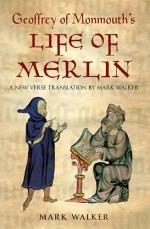|
This section contains 8,911 words (approx. 30 pages at 300 words per page) |

|
SOURCE: “Geoffrey of Monmouth in Renaissance Drama: Imagining Non-History,” in Modern Philology, Vol. 97, No. 1, 1999, pp. 1-20.
In the following essay, Curran argues that playwrights who tried to be faithful in their adaptations of Geoffrey's material met with disappointing results, whereas William Shakespeare's version—which did not treat the History literally—is a masterpiece.
At the end of King Lear, Shakespeare makes a crucial decision that sheds much light on his intentions for the play: contrary to the story he would have read everywhere else, he has Regan and Goneril die without issue. Geoffrey of Monmouth's version, recounted in his twelfth-century Historia Regum Britanniae, required that each daughter have a son so that the family feud could live on into the next generation.1 Shakespeare avoids any suggestion of this futurity, and the results of his drastic innovation are twofold. First, cutting the story off from its chronicle future precludes...
|
This section contains 8,911 words (approx. 30 pages at 300 words per page) |

|


